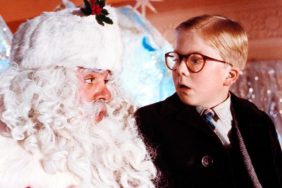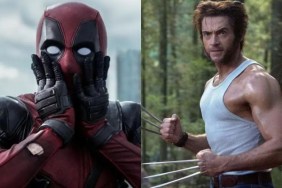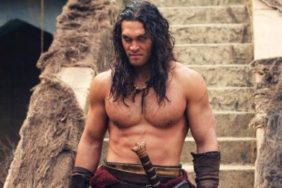Luc Besson injected new life into European action cinema with his films La Femme Nikita, Leon: The Professional and The Fifth Element, but over the last decade he’s spent more time writing and producing action standouts like District B13, Taken and the Transporter movies than he has directing. Luc Besson first film to get a wide American theatrical release in years is this weekend’s ‘sThe Family, an action comedy about a mafioso (Robert De Niro) and his family (Michelle Pfeiffer, Dianna Agron, John D’Leo) trying to fit in, and stay alive, after going into witness protection under the supervision of an American agent (Tommy Lee Jones).
I spoke to Luc Besson about why he felt the need to step behind the camera for The Family, the film’s adorable Goodfellas homage, getting approval from Martin Scorsese and the surprise cameo from a Luc Besson regular at the end of the film. (So let’s just say there are MINOR SPOILERS.) Plus, updates about which of his upcoming films are just internet speculation, and why he finds the American TV series “Nikita” and “La Femme Nikita” so abusing. They didn’t even send him flowers!
CraveOnline: You seem to write and produce more movies than you direct, nowadays. I’m wondering why The Family was a film that you wanted to direct yourself?
Luc Besson: This one, I was not supposed to direct at the beginning, but to be honest, we did a reading with Robert [De Niro] and the reading went extremely well. It was so funny. And then, Michelle Pfeiffer got involved and Tommy Lee Jones, and then I feel like a bee, falling in a pot of honey. I have to eat it all. [Laughs] Then you say to yourself, “Okay, there’s no way somebody else is gonna do it.” Plus, I spend a lot of time in the U.S. Half of my family is from Normandy. I have a house there, so I really know the two worlds. So, I feel that I was probably a good guy to do it.
The scene I love the most, and I can’t imagine I’m alone on this, is where Robert De Niro watches Goodfellas.
Yeah, I agree. [Laughs]
I’m wondering, if Robert De Niro hadn’t been available, do you think you would have changed the film?
Well, it was in the book, that scene. You know, the first thing I did, I was talking with Robert and I sent him the book first, because I think there’s no point to write the script if Robert doesn’t like it. So I sent the book and Robert loved it, so then I wrote the script and he loved the script, too.
Was it easy to get the rights to Goodfellas?
We don’t show anything from Goodfellas, so…
Well, you have the sound clips.
Yeah, the sound. It’s the music and the voice. Yeah, we had to ask the people and they read the scene and everybody laughed [laughs] and they said, “Yes, of course.” When we decided with Robert to make the film, one of the first persons we called was Martin Scorsese, because it’s basically a love letter to his cinema. So, we just want to have his opinion and we want him to share with us. He reacted very well. He read the script, he laughed a lot and said, “Guys, I’m with you.” So it all made sense. I think that if Robert doesn’t want to do it or if Scorsese is not feeling good about it, I will put the idea in the garbage.
Did Martin Scorsese have any notes on the script about realism or his own films or anything like that?
If he had them, he never told me because he’s a sweetheart [laughs] and he’s very polite. Okay, let’s be humble. I think he probably had some but he never told me. [Laughs] And I will understand. I mean, he’s from Brooklyn. He spent all his life there. I would feel totally fine if there are a couple of things that did go a little bit wrong but he didn’t say anything. The good thing is, on the set, Robert corrected me often on little details, you know. For example, when we had extras and he’d say, “Oh, you know, in the Seventies, the color of the shirt was not this way, but this way, and this guy with the hat doesn’t look good.” So, he helped me on the realism and the background and the story of the Mafia and all this. He was my guide and my specialist on the set.









